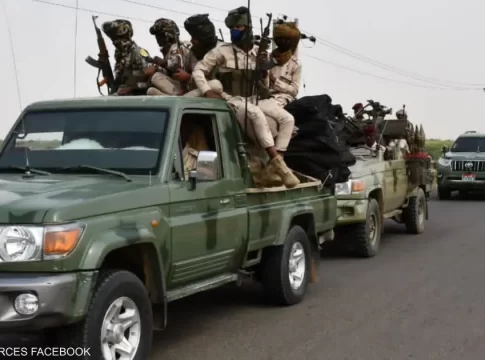In a troubling turn of events, Sudan’s paramilitary Rapid Support Forces (RSF), reeling from a series of strategic defeats at the hands of the Sudanese Armed Forces (SAF), have resorted to a brutal show of force against civilians in the Zamzam refugee camp. This act, seemingly aimed at clawing back a psychological victory amidst military setbacks, has brought widespread condemnation and highlighted the destructive tactics the RSF is willing to employ.
Recent operations by the SAF have successfully ousted RSF fighters from key positions, forcing their retreat from regions they once occupied. In response, the RSF unleashed a devastating attack on the Zamzam camp, home to nearly half a million displaced individuals enduring famine and hardship. According to Médecins Sans Frontières (MSF) and a Yale Humanitarian Research Lab report, the assault has led to the deaths of at least seven people and injured forty more, while obliterating approximately half of the camp’s central market.
Zamzam, once a sanctuary for those fleeing the violence of North Darfur’s capital, al-Fasher, has been under siege since early December. RSF fighters reportedly descended upon the camp from the east, setting the central market ablaze and firing indiscriminately, as confirmed by eyewitness accounts and open-source intelligence reviewed by CNN.
The RSF’s actions appear to be a desperate attempt to gain ground—albeit temporarily—by employing a scorched earth policy, leaving destruction in their wake. Satellite imagery and NASA’s fire data corroborate the deliberate nature of these attacks, echoing previous RSF-perpetrated arson in the area.
Despite RSF’s claims that the camp was a “military garrison,” international observers and local authorities have called for urgent intervention. Zamzam’s administrators have appealed to the United Nations for a protection mission, decrying the RSF’s tactics as brutal and inhumane.
Footage from the aftermath reveals the heartbreaking scene: charred remnants of market stalls, homes reduced to ashes, and a community left in fear and mourning. The RSF’s attempt to downplay their actions stands in stark contrast to the evidence of their aggressive artillery campaign, which Yale HRL indicates has targeted the camp since early December.
As the conflict in Sudan rages on, the plight of Zamzam’s residents underscores the urgent need for international attention and action. The RSF’s latest assault, rather than securing a meaningful victory, serves as a grim reminder of the human cost of war and the lengths to which a faltering force might go in its desperation.


